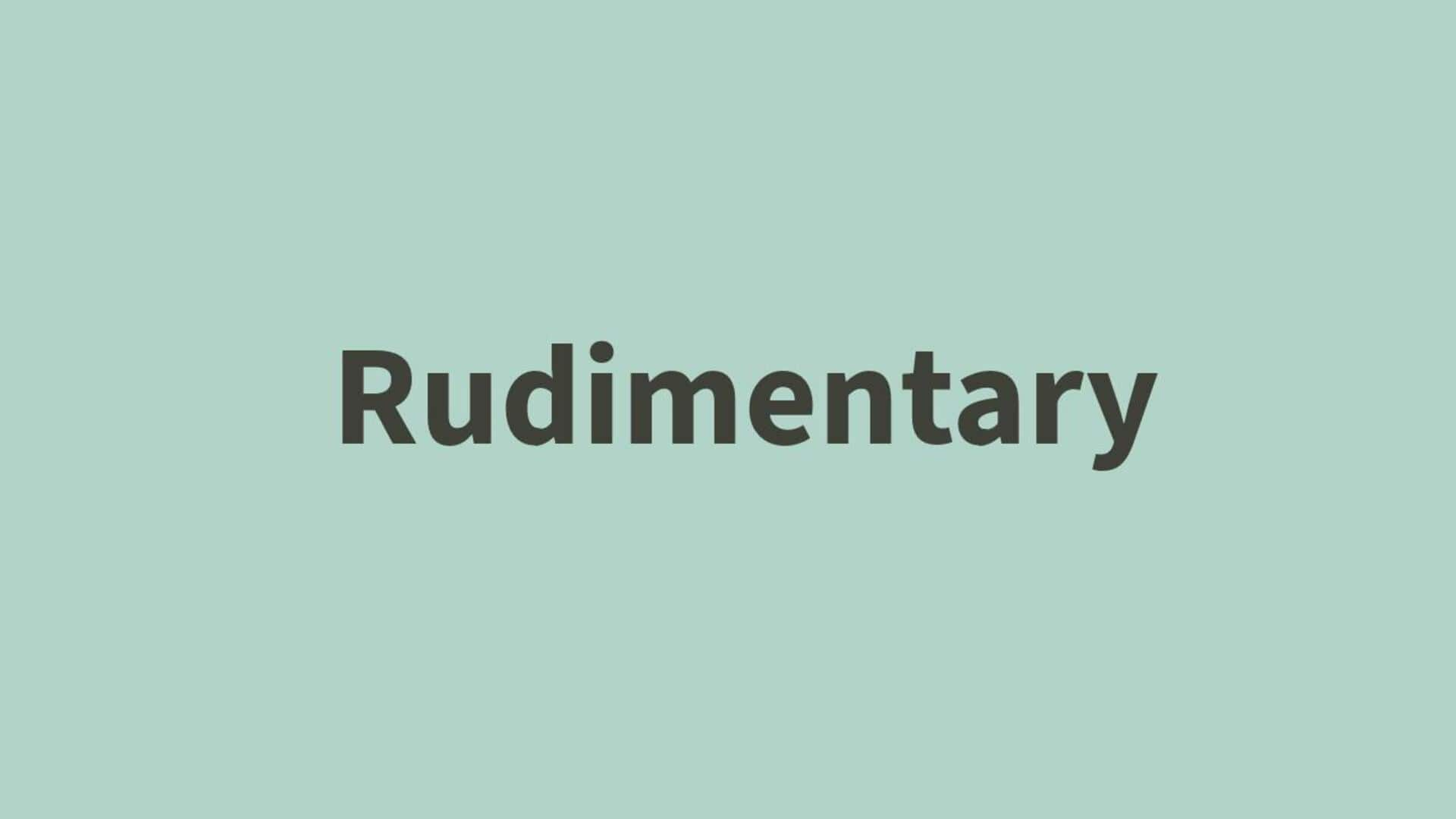
Word of the Day: Rudimentary
What's the story
"Rudimentary" is an adjective that refers to something basic, simple, or in the early stages of development.
It indicates a lack of complexity or advancement.
For instance, "rudimentary" knowledge means a very basic or preliminary understanding of a topic, without the depth or expertise that comes with further study.
Origin
The origin and meaning of 'rudimentary'
The word "rudimentary" originates from the Latin word rudimentum, meaning "beginning" or "foundation."
It entered the English language in the late 16th century. Over time, its meaning evolved to describe something in its early, undeveloped, or basic form.
It can apply to various fields, including education, skills, or even physical development, reflecting something not fully developed.
Synonyms
Synonyms for 'rudimentary'
Synonyms for "rudimentary" include basic, elementary, primitive, simple, fundamental, and introductory.
While these words share a similar meaning, "rudimentary" emphasizes something that is in a raw, unfinished, or initial state.
It suggests that the subject is far from complete or advanced in its development.
Usage
Sentence usage
Here are examples of how "rudimentary" can be used in sentences:
"His 'rudimentary' understanding of the language made communication challenging."
"The machine had only 'rudimentary' features, lacking any advanced functions."
"The class offered a 'rudimentary' introduction to coding for beginners."
"The student had a 'rudimentary' grasp of mathematics, struggling with more complex problems."
Dialect
Interesting fact
In linguistics, "rudimentary" can also refer to the simplest form of a language or dialect, particularly in early language development.
For instance, a child's first words or a simplified version of a language spoken by a community can be considered "rudimentary," as they lack the complexity and structure of a fully developed language.